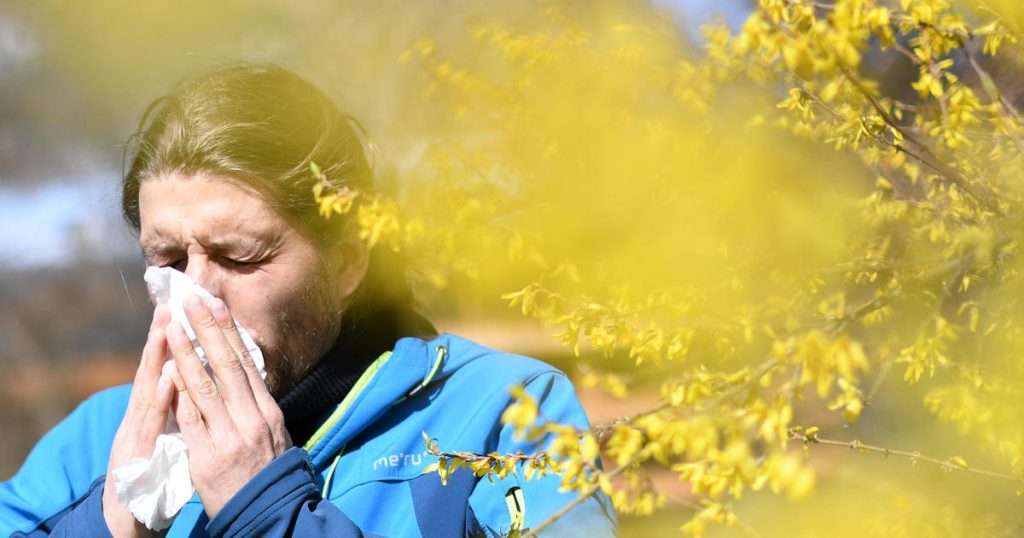Allergy season is arriving earlier and stronger than expected this year, with spring weather spreading rapidly across the central part of the country. According to the USA National Phenology Network, several cities such as Denver, Chicago, and Detroit are experiencing spring conditions days or even weeks earlier than the long-term average. Last year’s allergy season also started early, forcing spring allergy sufferers to deal with symptoms sooner and for longer periods of time. Researchers attribute this trend to climate change, with the warmest winter on record leading to earlier and longer blooming periods for plants, resulting in increased pollen levels in the air.
William Anderegg, an associate professor at the University of Utah, highlights heat as a significant driver of worsening pollen seasons, with a 21% increase in pollen between 1990 and 2018. Dr. Rachna Shah, an allergist, noted that tree pollen levels were already at a “moderate” level in mid-February in the Chicago area, much earlier than usual. Cities like Wichita, Virginia Beach, and Dallas are among the most challenging places to live for allergy sufferers this year, based on over-the-counter medicine use, pollen counts, and accessibility to allergists. Pollen originates from trees, grasses, and weeds, both outdoors and indoors, posing a risk to allergy sufferers even when they are inside their homes.
Allergy symptoms to watch for include nasal congestion, runny nose, sneezing, itchy eyes, and coughing. Postnasal drip can lead to a sore throat, while sinus headaches may occur due to swelling in the sinuses. However, fever is not a symptom of allergies; rather, it could indicate a sinus infection caused by bacteria or viruses. Dr. Neil Parikh, an allergist and immunologist, recommends steps like taking a shower, changing clothes, and using a sinus rinse with saline water after being outdoors during high pollen times. HEPA air purifiers can also help remove pollen particles from indoor spaces, reducing exposure to allergens.
As pollen seasons continue to start earlier and become more severe, it is essential for individuals with allergies to take precautions to reduce exposure and manage symptoms effectively. By staying informed about pollen counts, using HEPA air purifiers, and following post-exposure hygiene practices, allergy sufferers can alleviate the impact of seasonal triggers. Ultimately, understanding the sources of pollen, recognizing allergy symptoms, and seeking appropriate medical advice when necessary are crucial steps towards managing allergies during the spring season.


